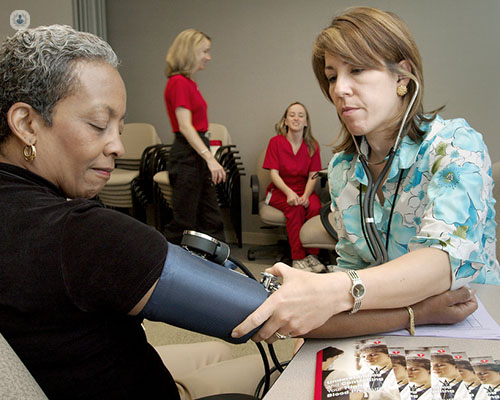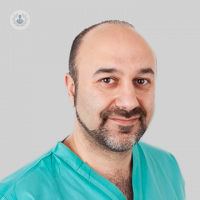What causes pulmonary hypertension?
Written in association with:In this article below, highly regarded cardiologist, Dr Sami Firoozi, provides us with a detailed guide with regards to pulmonary hypertension.

What is pulmonary hypertension?
Pulmonary hypertension (PH) is a condition characterised by high blood pressure in the arteries that supply the lungs. Unlike systemic hypertension, which affects the entire body's arteries, PH specifically targets the pulmonary arteries. This condition can lead to severe complications as it places significant strain on the heart, potentially resulting in right heart failure.
What causes pulmonary hypertension?
The causes of PH can be diverse and are categorised into five groups based on underlying mechanisms. These include pulmonary arterial hypertension (PAH), caused by the narrowing of blood vessels in the lungs; PH due to left heart disease; PH associated with lung diseases or hypoxia; PH due to chronic blood clots in the lungs; and PH caused by other multifactorial mechanisms. Factors such as genetics, connective tissue disorders, congenital heart disease, and certain medications can also contribute to the development of PH.
What are the symptoms of pulmonary hypertension?
Symptoms of PH can be nonspecific and often develop gradually. Early signs include shortness of breath, fatigue, dizziness, and chest pain, which are frequently mistaken for other conditions. As the disease progresses, symptoms may worsen, leading to swelling in the ankles and legs, bluish lips and skin (cyanosis), and palpitations. These symptoms result from the heart's struggle to pump blood effectively through the narrowed pulmonary arteries.
How is pulmonary hypertension diagnosed?
Diagnosing PH involves a series of tests to evaluate the heart and lungs. An echocardiogram is typically the first step, as it can estimate the pressure in the pulmonary arteries and assess heart function. Additional tests may include right heart catheterization, pulmonary function tests, CT scans, and blood tests to determine underlying causes and severity.
What are the treatment options for pulmonary hypertension?
Treatment for PH aims to manage symptoms, improve quality of life, and slow disease progression. Medications such as endothelin receptor antagonists, phosphodiesterase-5 inhibitors, and prostacyclin analogs help relax blood vessels and reduce pressure. Oxygen therapy, diuretics, and anticoagulants may also be prescribed. In severe cases, lung transplantation or atrial septostomy might be considered. Lifestyle changes, including a low-sodium diet, regular exercise, and avoiding high altitudes, are also essential in managing the condition.
What is the prognosis for pulmonary hypertension?
The prognosis for individuals with pulmonary hypertension varies widely depending on the cause, severity, and response to treatment. Early diagnosis and appropriate management can significantly improve outcomes. Ongoing research and advances in treatment options continue to offer hope for those affected by this challenging condition.


